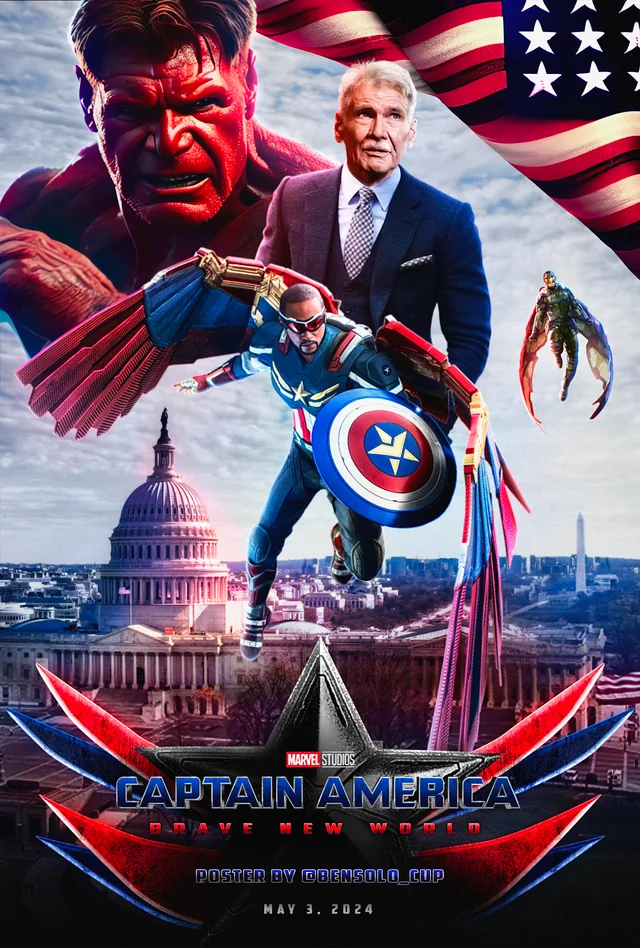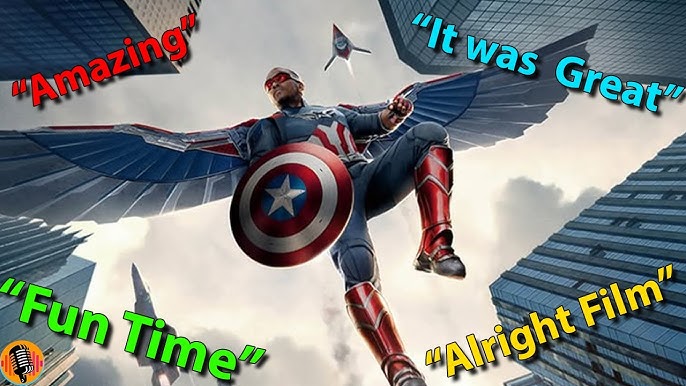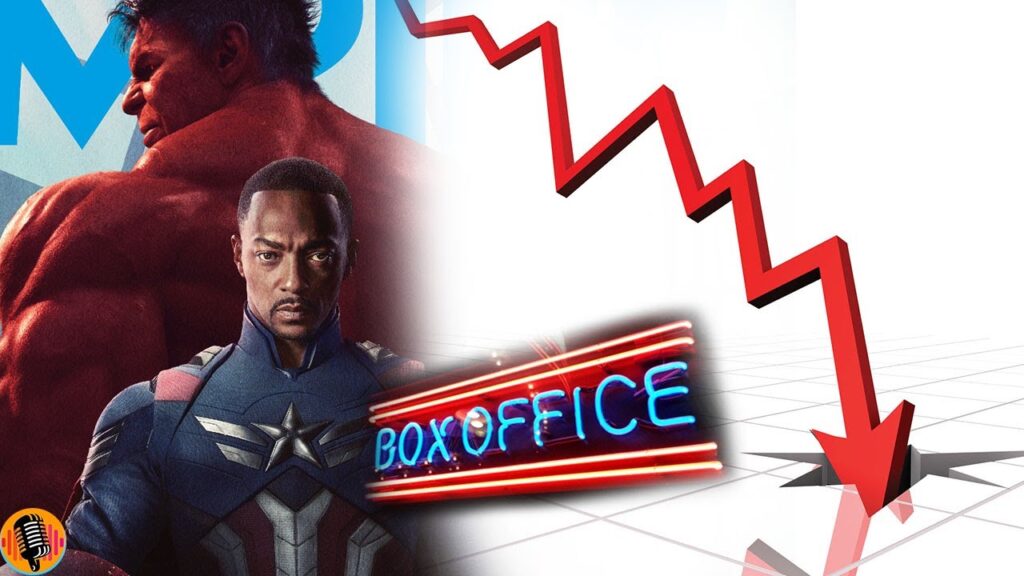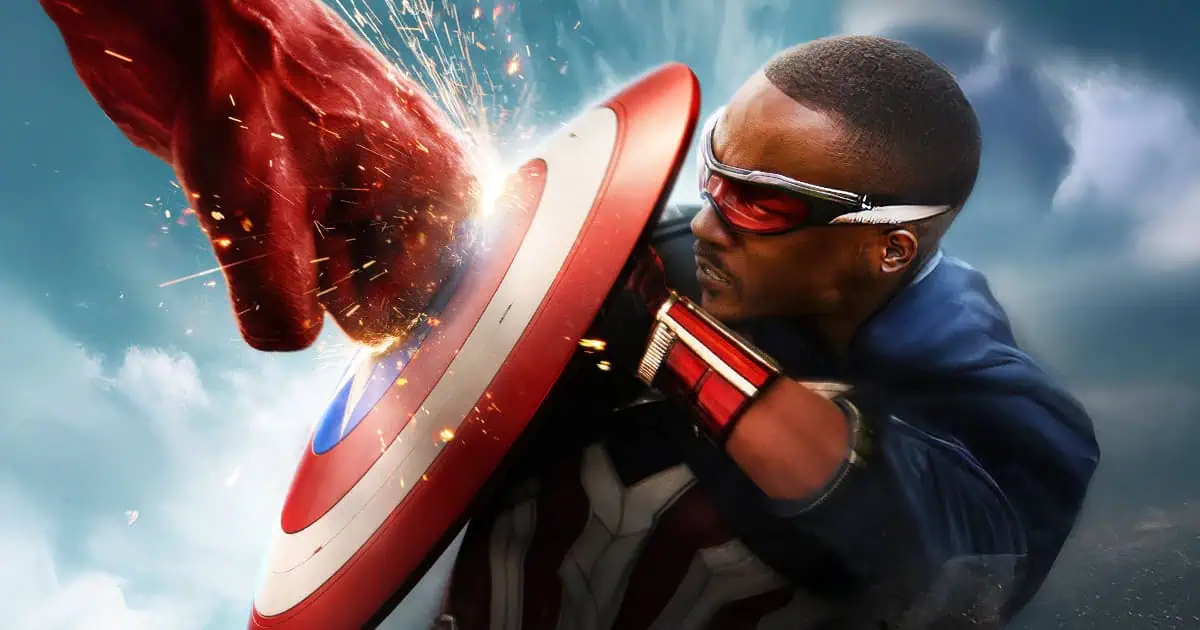The Marvel Cinematic Universe (MCU) has long been a cultural touchstone, reflecting and sometimes challenging societal norms.
With the release of “Captain America: Brave New World,” the franchise once again finds itself at the epicenter of cultural and political debates.
This film not only introduces a new bearer of the iconic shield but also delves into themes that resonate deeply within the current American sociopolitical landscape.
A New Captain America for a New Era

“Captain America: Brave New World” marks a significant transition in the MCU, with Anthony Mackie’s Sam Wilson stepping into the role of Captain America.
This casting choice is emblematic of a broader shift towards inclusivity and representation in Hollywood.
However, it has also ignited discussions about identity, patriotism, and the evolving image of American heroes.
The Significance of Sam Wilson’s Ascension

Sam Wilson, formerly known as the Falcon, taking up the mantle of Captain America is a narrative steeped in both comic book lore and real-world implications.
In the comics, Wilson’s journey to becoming Captain America addresses issues of race, identity, and what it means to represent a nation with a complex history.
Translating this to the big screen, especially during Black History Month, amplifies these themes, prompting audiences to reflect on the legacy of Black Americans and their relationship with national symbols.
Anthony Mackie’s Perspective

Anthony Mackie has been vocal about the nuances of portraying a Black Captain America.
In interviews, he emphasized that Captain America embodies qualities like honor, dignity, and integrity, suggesting that these virtues transcend the traditional symbolism associated with the character.
However, his remarks sparked debates, leading him to clarify his deep respect for the role and its significance.
The Political Undertones of ‘Brave New World’
The film’s narrative is unapologetically political. It features President Thaddeus Ross, portrayed by Harrison Ford, who undergoes a transformation into the Red Hulk.
This plotline intertwines with contemporary issues, including the discovery of a new element, Adamantium, in Japanese waters, which threatens to escalate into international conflict.
Such story elements mirror real-world geopolitical tensions, inviting viewers to draw parallels between fiction and reality.
Reflecting Real-World Politics
By casting the U.S. President as a supervillain, the film blurs the lines between governance and villainy, prompting discussions about leadership, power, and morality.
This portrayal can be seen as a commentary on the current political climate, where the actions and decisions of leaders are under intense scrutiny.
Cultural Backlash and Accusations of ‘Wokeness’
The MCU’s recent endeavors, including “Brave New World,” have faced criticism from certain segments of the audience who accuse the franchise of succumbing to a “woke” agenda.
This term, often used pejoratively, suggests an overemphasis on social justice themes at the expense of storytelling.
Social Media Reactions

Platforms like Twitter and Facebook have become battlegrounds for debates surrounding the film.
Detractors argue that the MCU is prioritizing political correctness over entertainment, while supporters contend that the franchise is evolving to reflect a more diverse and inclusive society.
This dichotomy highlights the broader cultural clash between traditionalist views and progressive ideals.
Historical Context of Political Storytelling in Comics
It’s essential to recognize that comic books, including Captain America, have a longstanding tradition of addressing political and social issues.
From battling Nazi forces in the 1940s to confronting domestic corruption, the character has often been a vessel for exploring America’s moral and ethical dilemmas.
The current discourse is a continuation of this legacy, reflecting the ever-evolving societal landscape.
The Inclusion of Sabra and International Implications
Another contentious aspect of “Brave New World” is the introduction of Sabra, an Israeli superhero.
Her inclusion has led to calls for boycotts from Palestinian cultural groups, who view the character as a symbol of political tensions in the Middle East.
Navigating Complex Narratives
Incorporating a character like Sabra requires a delicate balance.
The filmmakers face the challenge of honoring the character’s origins while acknowledging the real-world implications her presence brings.
This situation underscores the broader issue of how fictional narratives intersect with geopolitical realities, and the responsibilities creators bear in such portrayals.
Behind-the-Scenes Challenges

The production of “Brave New World” was not without its hurdles.
The film experienced actor recasts and multiple script rewrites, indicating a tumultuous development process.
These challenges may have influenced the final product, potentially contributing to critiques regarding its coherence and overall quality.
Harrison Ford’s Role

Harrison Ford’s portrayal of President Thaddeus Ross is a notable highlight.
Returning to a presidential role decades after “Air Force One,” Ford brings gravitas to the character.
However, some reviews suggest that even his performance couldn’t fully elevate the film above its narrative shortcomings.
Reception and Box Office Performance

“Brave New World” has elicited mixed reactions from both critics and audiences.
While some praise its bold thematic choices, others feel the film struggles to balance its political commentary with the action and entertainment expected from a superhero blockbuster.
Critical Reviews
Critics have noted that while the film attempts to address pressing societal issues, it sometimes falters in delivering a cohesive and engaging story.
The ambition to tackle complex themes is evident, but execution remains a point of contention.
Box Office Figures

Financially, the film’s performance reflects this
